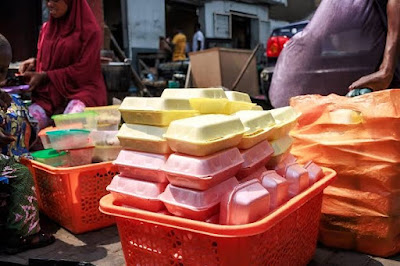EACOP: Another Big Pipeline Project in Africa Still Hanging in the Balance
It's a literal reality and not a humorous anecdote that Africa has a lot of unfinished oil and gas pipeline construction projects scattered across the continent but what could be hindering developments in a key sector as that for a continent whose population yearns for energy for industrialisation and more?
First conceptualised about two years ago, the East African Crude Oil Pipeline (EACOP) is an underground crude oil pipeline that's to run a total length of 1,443km from the Tilenga oil field in Western Uganda to the Indian Ocean port of Tanga in Tanzania (erstwhile Tanganyika).
It's such a massive project with huge economic prospects. If completed, the pipeline could transport as much as 1 billion barrels of crude oil every day across the two East African countries. It is to become the world's longest electrically heated pipeline, in fact.
Working to bring project into life are the Uganda National Oil Corporation UNOC and Tanzania Petroleum Development Company TPDC alongside some reputable multinationals like French oil giant TotalEnergies and Chinese giant CNOOC.
TotalEnergies is the biggest shareholder in the project with 62% equity, while UNOC and TPDC and CNOOC each control 15%, 15%, and 8% respectively.
What might be standing in the way of such a promising project?
The Pipeline has witnessed wide and stiff opposition seen yet in the Africa's oil and gas industry. To date, over 250 community groups across Uganda, Tanzania and nearby countries have through public mobilisation and protest, various legal actions, research, and media advocacy campaigns been calling for the project to be called off. But why?, you might ask.
Firstly, people have been voicing their concerns about the environmental implications of building such a large-scale oil infrastructure. This warranted the United Nations Intergovernmental Panel on Climate Change IPCC this month said the world can't afford to build such a fossil fuel infrastructure because of the huge CO2 emission burden which comes with it.
Secondly, the project which is take up about 5,300 hectares of land, is adjudged to pose a real threat to some protected areas like national parks and harm sustainable occupation like fishing and tourism.
For instance, the said pipeline will destroy vegetation and habitats of some already endangered wildlife. Although, it's not forbidden under extant Ugandan law to carry out oil exploration in protected areas but as a member of the International Union for Conservation of Nature, it is expected to avoid industrial activities in such areas. This spells dilemma, isn't it?
Thirdly, there's cause for worry as to whether the various parties involved will provide adequate compensation to the almost 1,400 households who stand the risk of being displaced.
As a result, the project falls short in ESG risk rating which has prompted many multinational banks and insurance companies to refuse issuing funding for the project, leaving the project hanging in the balance.
The big questions now are, should such an important energy project be halted because of the opposition it now faces? Shouldn't we allow it to continue courtesy of the huge positive economic benefits it portends? Doesn't the gains it offers in prospect eclipse the costs?
However you look at it, I think the project should be allowed to go ahead. This is because democratic governments in Uganda and Tanzania have the right of eminent domain, insofar as it compensates those concerned fairly. Assuring the local community groups that the compensation for those marked for displacement would be fair would be one big move to having the project started.
TotalEnergies, CNOOC, UNOC and TPDC are on par for the course to ensure this project doesn't fade into white noise. The synergy between these corporates doesn't seem to be waning soon.
EACOP must be allowed to continue for the economic good of the generality of Ugandans and Tanzanians. For job creation and for enhanced crude trade earnings.
Africa needs energy to industrialize. Africa needs energy to fully modernise.
Uganda's first commercial oil was discovered by British energy firm Tullow Oil in the Lake Albert basin in 2006. TotalEnergies bought off the interest in 2020. Lake Albert borders DR Congo to the north east. Tilenga and Kingfisher are the nation’s two commercial oil fields.



Comments